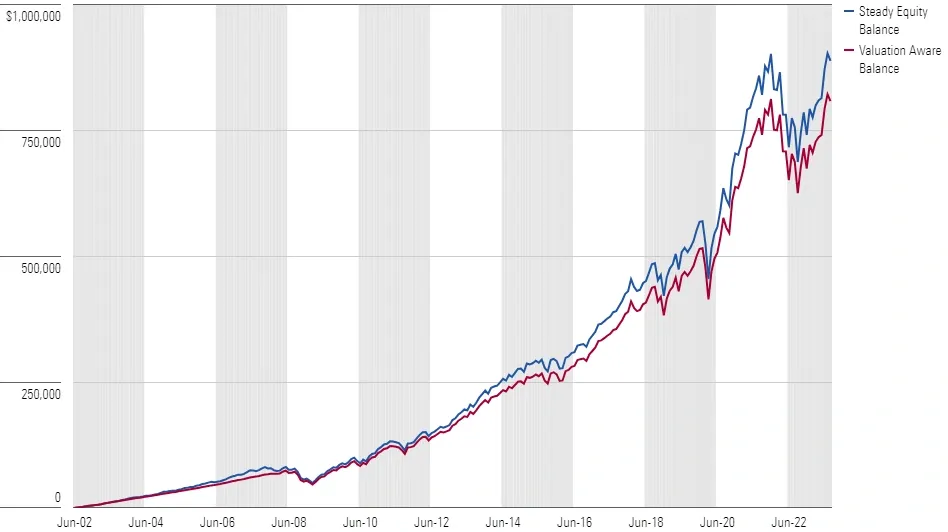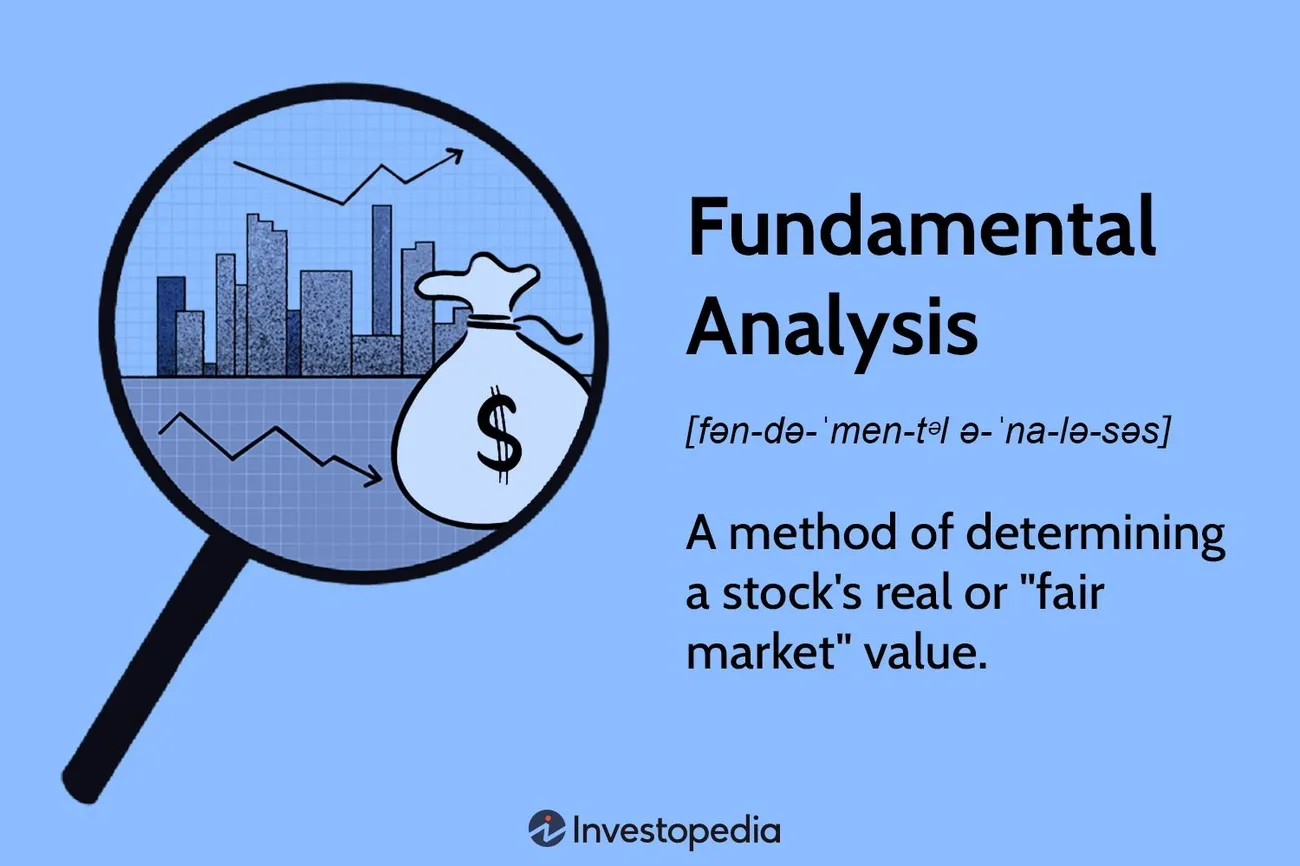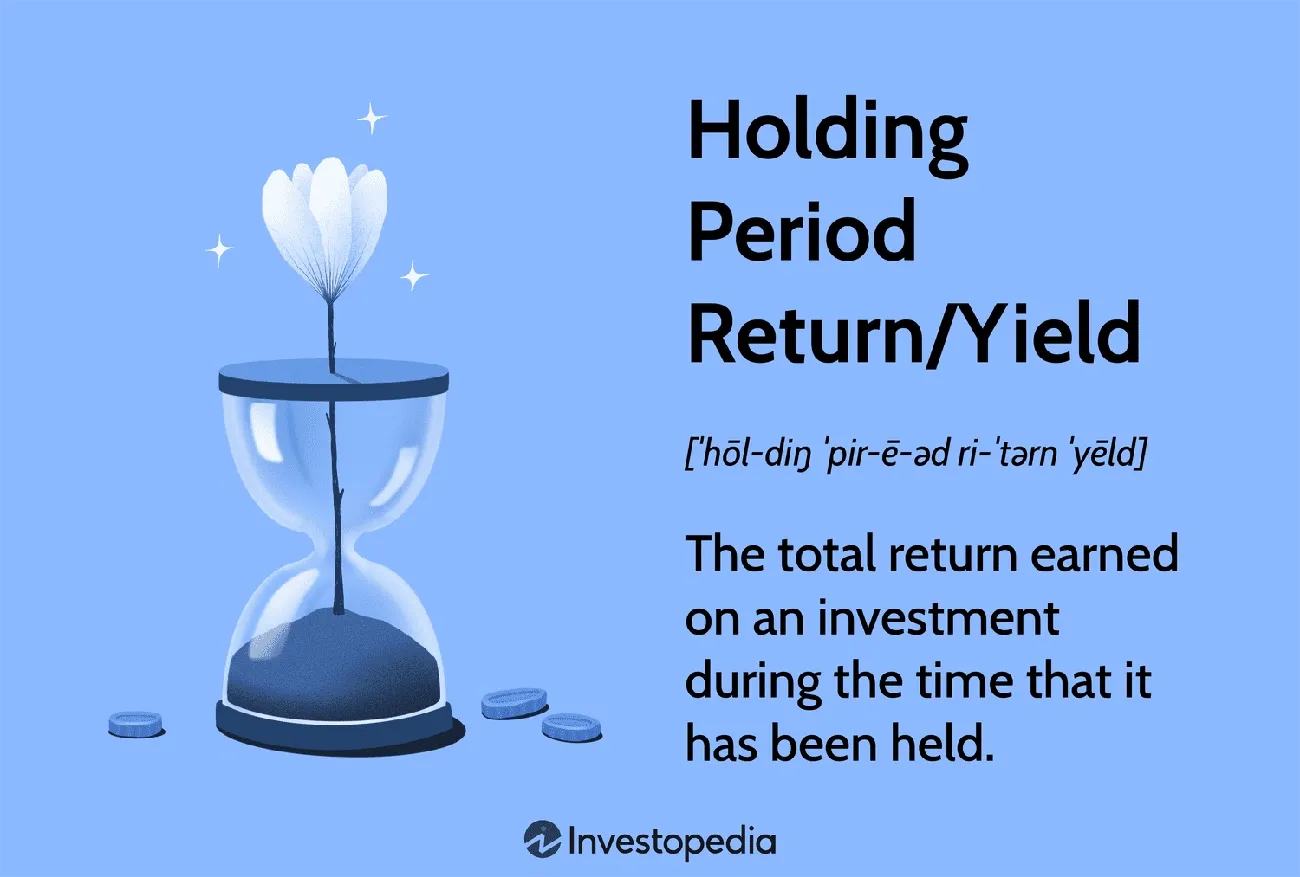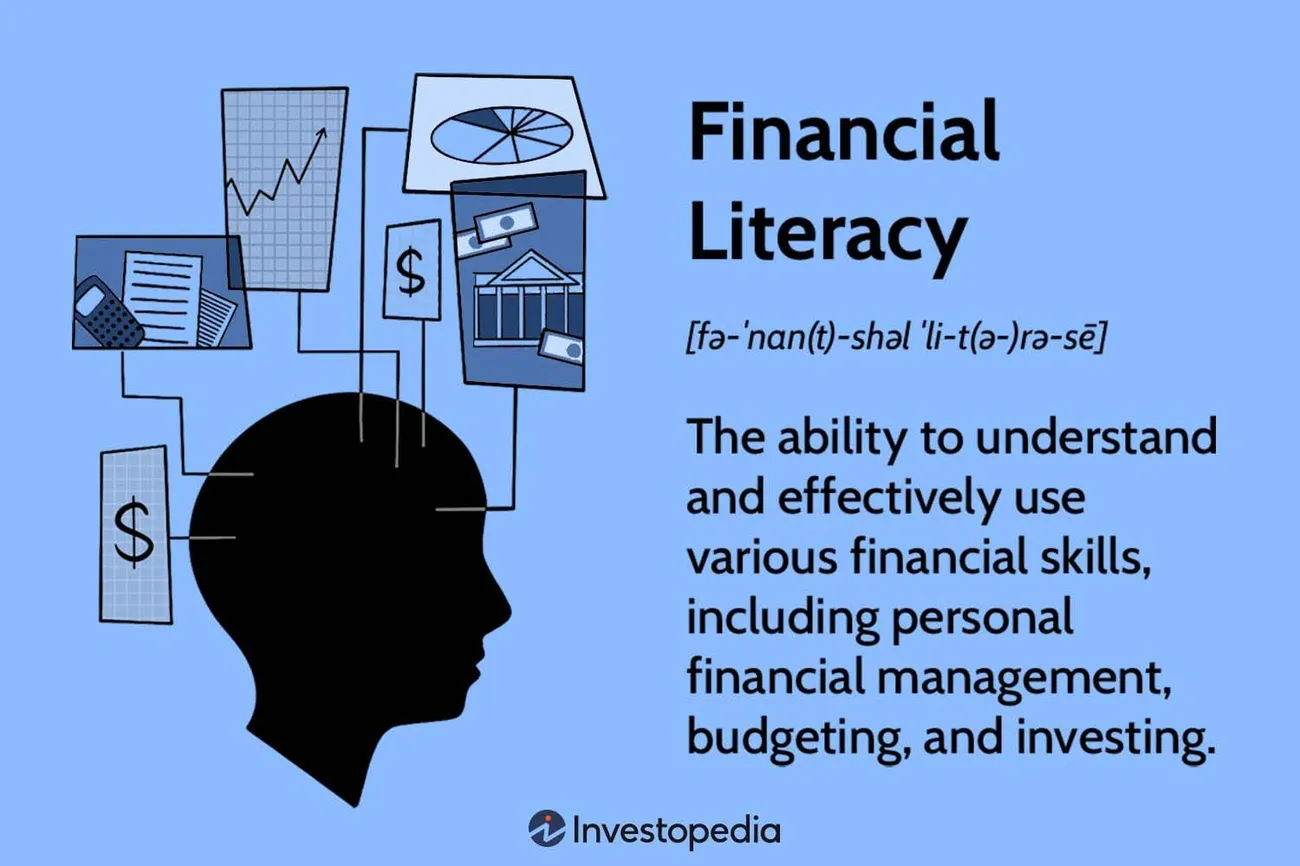Have you observed that affluent individuals effortlessly increase their wealth, while you struggle to manage your bills? The real secrets behind millionaires’ success stories don’t show up in your average textbook or financial column.
Wealthy individuals aren’t smarter or born luckier than you – they just play by a different set of rules. Everyday people remain unaware of these powerful money principles that spread through private networks. Simple yet powerful strategies that could reshape the scene of your finances remain in the shadows.
Your path to financial freedom might be right in front of you. The seven wealth secrets you’ll soon find have quietly created fortunes across generations. You won’t need a genius IQ to use these strategies – they’re practical rules anyone can follow with proper guidance.
Time to reveal what the wealthy know and you don’t—yet.
They Let Compound Interest Do the Heavy Lifting
Image Source: FasterCapital
The wealthy don’t chase overnight success with their money. They understand a basic principle that Albert Einstein called “the eighth wonder of the world”—compound interest.
Rich investors see something most people miss: patience builds wealth more effectively than timing. They automate their financial systems, allowing mathematics to work in their favour over several decades.
Compound interest strategy of the rich
The wealthy take a different approach to compound interest than average investors. Their strategy builds on three core principles:
- Consistent contributions – They add money to investments whatever the market conditions
- Extended holding periods – They keep their positions through market cycles without panic selling
- Portfolio concentration – They let winners grow without taking profits too early
The wealthy know that one mega-winner can cover all their losses—if they don’t sell early. Successful investments grow larger and naturally concentrate your portfolio without extra effort. This passive concentration effect creates wealth as compound interest speeds up.
Unlike average investors who shuffle positions looking for quick profits, affluent investors plant financial seeds and wait for exponential growth.
Why compound interest works long-term
Time makes compound interest more powerful exponentially. Let’s look at two investors:
Investor A puts in €5,000 yearly for 10 years starting at age 25, then stops (€50,000 total investment)
Investor B puts in €5,000 yearly for 30 years starting at age 35 (€150,000 total investment)
At age 65 with an 8% average return, Investor A would have about €787,000 while Investor B would have €611,000. Investor A ended up with more wealth through the power of time, despite investing €100,000 less and stopping after 10 years.
Higher-performing investments make these numbers even more dramatic. A single position that grows 10x or more can outweigh many underperforming ones.
What feels safe now (like holding cash) often becomes risky over decades due to inflation and missed chances. Market volatility, which seems risky in the short term, often proves reliable over longer periods.
How to apply compound interest in your finances
You can use compound interest without giant wealth through these practical steps:
Start with automatic investments: Set up recurring transfers into low-cost index funds. Even small amounts grow through compounding.
Increase holding periods: Give your investments more time by avoiding early sales. Most investors cut winners too soon, missing out on exponential returns.
Focus on fundamentals, not prices: Watch how businesses perform instead of daily stock movements. Price swings distract from the growth happening underneath.
Reinvest all gains: Put dividends and interest back into your investments instead of spending them. This speeds up the compounding effect.
Minimise tax disruptions: Too much trading creates tax events that reduce your compounding base. Use tax-advantaged accounts when you can.
The wealthy know it’s easier to say you’re a long-term investor than to be one. Market drops trigger emotions that make average investors sell right when compound interest would work hardest.
You can benefit from the same wealth-building engine the rich have used for generations by focusing on what you control—how much you put in, how long you hold, and your emotional discipline.
They Rarely Sell Their Best Investments

Image Source: Morningstar
Successful investors stand out not by how they buy, but by their amazing self-control when selling. This mindset sets wealthy investors apart from regular investors who keep shuffling their portfolios.
Why the rich hold onto winners
Rich investors grasp a basic truth: investing works more like rolling dice than flipping coins. A coin flip gives you 50/50 odds. Investment returns follow a different path, where one mega-winner can pay for all your losers – if you keep holding it.
Something magical happens when you stick to your investments – your portfolio concentrates itself naturally. Your winners grow bigger compared to everything else. They take up more space without you buying more. This silent process lets wealthy investors ride the wave of exponential growth.
Rich investors also know that timing tips the odds in their favour. Longer holding periods let investments compound through multiple business cycles. Simple returns become exceptional ones over decades.
A newer study, published in 2016 by S&P 500 showed that all but one of these companies created the market’s gains over Treasury bills between 1926 and 2016. Investors who sold these rare winners missed almost all the market’s extra returns.
Psychology behind not selling early
Being a long-term investor sounds easy, but it’s nowhere near simple. Even disciplined investors struggle to hold winners for several reasons:
- Fear of losing gains – As profits grow, fear of losing what you’ve made overshadows future potential
- Recency bias – Latest price moves seem more important than long-term business basics
- Social comparison – Friends bragging about selling at “the top” creates FOMO (fear of missing out)
- Mental accounting – We separate “gains” from principal in our minds, making it easier to sell winners
Investing plays mind games with everyone. Wealthy investors fight these mental traps by focusing on what they control: their behaviour during market swings, information sources, and how they make decisions.
Rich investors know exactly when they understand enough about a business to make confident decisions. This clarity helps them ignore market noise and watch business results instead of price swings.
How to identify long-term winners
Wealthy investors look for specific traits in potential long-term winners:
- Business model durability – Companies with sustainable competitive advantages
- Management quality – Leaders who focus on creating long-term value
- Financial strength – Strong balance sheets ready for economic storms
- Growth runway – Big markets with room to expand
- Pricing power – Companies that can raise prices without losing customers
Smart investors watch the business, not the stock price. They read income statements to spot company phases (growth, maturity, or decline) and set proper expectations. They know when valuations matter and when they don’t— quality matters more than temporary price swings.
Never lose sight of your most valuable assets. This applies to investments and your knowledge of making decisions. Let us help you find potential long-term winners in your portfolio through a free consultation.
Market drops don’t hit all companies equally. Strong businesses often emerge tougher from downturns, while weak ones might never bounce back. Average investors make their biggest mistake by selling during temporary market dips.
They Focus on Business Fundamentals, Not Stock Prices

Image Source: Investopedia
A key difference separates average investors from the wealthy: rich people know that stock prices and business performance are two entirely different things. This insight changes the way they make investment decisions.
What fundamentals do the rich analyse?
Wealthy investors know exactly what to look for when they assess a company’s health. They examine income statements to determine a company’s phase—growth, maturity, or decline. This procedure reveals much more than any stock chart could show.
Rich investors look closely at:
- Revenue growth – Not just the percentage increase but the consistency and sources of growth
- Profit margins – Whether they’re expanding or contracting over time
- Cash flow generation – The lifeblood that sustains operations and funds expansion
- Return on invested capital – How efficiently management deploys resources
More than that, they analyse management’s main goals. Sophisticated investors usually raise red flags for executives who prioritise short-term stock performance over long-term business building. Yes, it is true that management teams obsessed with quarterly earnings often make decisions that hurt the company’s future.
These financial lessons ended up teaching wealthy investors to focus on business fundamentals that predict future success rather than recent stock movements that only reflect past events.
Why ignoring stock price noise matters
Daily stock price swings create constant psychological pressure. Notwithstanding that, wealthy investors see these movements as meaningless without context. They know that falling stock prices don’t affect all companies equally—quality businesses often emerge stronger from market downturns.
Investing can manipulate your mind in numerous ways. Your emotions might push you to sell during temporary declines, exactly when holding becomes most beneficial. This phenomenon explains why many average investors perform worse than the funds they invest in—they buy high out of excitement and sell low out of fear.
On top of that, it’s common for stock prices to disconnect from business performance in the short term. This gap creates opportunities for patient investors who understand that stock prices will match business results given enough time.
Ignoring price noise teaches an important financial lesson because it keeps you from disrupting the compounding process. Each time you sell based only on price movements, you might give up years of future growth.
How to evaluate a business like the rich
To analyse companies with wealthy investors:
- Study financial statements directly – Look beyond headlines and analyst opinions by reading quarterly reports yourself
- Track key performance indicators – Find metrics specific to the company’s industry that show competitive strength
- Evaluate management’s capital allocation – Their resource deployment often determines long-term returns
- Assess competitive advantages – Search for lasting edges that competitors find hard to copy
Rich investors define exactly when they “know enough” about a business to make high-conviction decisions. This clarity helps them ignore market noise and focus only on factors they can control.
Buy at better value points, not just lower prices. A temporarily cheap stock of a failing business isn’t a bargain—it’s a value trap. Sometimes paying more for exceptional businesses delivers better long-term results.
The basic rule: watch the business, not the stock. Companies that consistently grow their value through expanding cash flows and stronger competitive positions will see their stock prices rise—whatever the short-term market sentiment or economic conditions.
Note that investing isn’t a coin flip with 50/50 odds but rather a dice roll where exceptional outcomes remain possible for businesses with lasting advantages. Please identify these companies and maintain your investment in them with patience throughout market cycles.
They Understand Valuation Metrics Deeply
A simple grasp of investing isn’t enough to build wealth. What sets rich investors apart is their profound knowledge of valuation metrics. They don’t just know the numbers—they understand exactly when these metrics matter and when they don’t.
Valuation metrics rich investors use
Rich investors carefully pick valuation tools based on each company’s situation. We analysed these key metrics:
- Price-to-Earnings (P/E) Ratio – Works best with mature companies that show stable earnings
- Price-to-Sales (P/S) Ratio – Better suited to growing companies that haven’t turned profitable yet
- Enterprise Value-to-EBITDA – Gives a clearer view when comparing companies with varying debt levels
- Free Cash Flow Yield – Shows the cash a business generates compared to its price
Successful investors watch the income statement to figure out a company’s phase—growth, maturity, or decline. This helps them pick the right valuation metric. To cite an instance, see how startups with minimal earnings need different tools than 10-year-old businesses with steady cash flows.
When valuation matters and when it doesn’t
Rich investors have learnt a crucial lesson: they know when to focus on a valuation and when to look past it. This difference usually depends on:
- Business Quality – Rich investors often pay premium prices for exceptional businesses with strong advantages, knowing that quality ended up being more important than the original valuation
- Growth Trajectory – Traditional valuation metrics can mislead for faster-growing companies since they show past performance instead of future potential
- Market Conditions – During market panic, business fundamentals matter more than valuations because irrational pricing creates opportunities
Note that buying at better value points doesn’t mean buying at lower prices. A declining business might look cheap but gets more expensive as its prospects worsen. While average investors chase bargains, rich investors look for quality at fair prices.
How to use valuation in your own investing
Here’s how to apply these financial lessons to your portfolio:
- Check which phase each company is in before using valuation metrics. Growing companies need different standards than mature ones. This context helps avoid misleading comparisons.
- Set clear valuation thresholds that tell you when to buy businesses you know well. These thresholds should change based on quality—letting you pay more for exceptional businesses with lasting advantages.
- Learn to act when valuations look good. Many investors can spot fair prices but hesitate to buy when markets get scary.
It’s worth mentioning that valuation isn’t about guessing short-term price moves. Instead, it helps measure what you get in business ownership compared to what you pay. In other words, it shows the gap between price and value.
These financial freedom lessons reveal that rich investors don’t just hunt for cheap stocks—they seek valuable businesses at fair prices. This difference might seem small but creates dramatically different results over decades of investing.
They Control Their Emotions During Market Volatility

Image Source: Nationwide
Market fluctuations show a clear difference between average investors and the wealthy. Most people panic during downturns. The rich stay remarkably calm, and their emotional discipline often determines who succeeds and who fails financially.
Emotional discipline of wealthy investors
The financial elite understands the manipulative nature of investing. They zero in on what they can control—their reactions, information sources, and how they make decisions. Market crashes don’t shake their focus from business fundamentals.
The wealthy know that falling stock prices don’t affect all companies the same way. Strong businesses with competitive edges often come out stronger from market downturns. Weaker ones might never bounce back. This viewpoint helps them see volatility as a chance to buy, not a threat to run from.
Rich investors set clear standards for what they need to know about a business. This clarity enables them to ignore market noise and remain steadfast during challenging times. They see big drops as sales, not disasters.
How fear and greed affect average investors
Average investors often wreck their financial future by letting emotions drive their choices. Research shows they perform worse than the funds they buy into. They buy high when excited and sell low when scared.
The Dunning-Kruger effect significantly contributes to this phenomenon. New investors think they know more than they do. This makes them easy targets for emotional decisions when markets get rocky. Fear takes over their thinking as markets fall, and they sell at exactly the wrong time.
Being a long-term investor sounds easy, but it’s nowhere near as simple in practice. Market drops trigger strong emotional responses that test even the most disciplined investors. The biggest investing mistake—panic selling during temporary downturns—comes straight from this emotional weakness.
Techniques to stay calm like the rich
To build emotional strength like wealthy investors:
- Focus on business metrics, not stock prices. Watch revenue growth, profit margins, and market position instead of daily prices
- Establish clear investment rules – Set your buying and selling guidelines before emotions kick in
- Limit financial news consumption – Stay away from dramatic headlines that trigger emotional responses
- Document your investment thesis – Write down your reasons for each investment to review during tough times
- Study market history – Learning about past crashes builds confidence during current volatility
Smart buying at better value points is different from chasing lower prices. Quality businesses on temporary sale give you a real chance to profit. Failing companies with “bargain” prices often turn into money pits.
Wealthy investors grasp a counter-intuitive truth: keeping cash may feel safe in the short term, but it risks losing value due to inflation over decades. Market swings seem scary in the short term but prove reliable over time—a vital lesson for financial freedom.
Usually, the difference between those who build wealth and those who don’t is their ability to remain calm during challenging market conditions. This disciplined mindset is one of the most valuable financial lessons you can learn.
They Know the Power of Holding Periods

Image Source: Investopedia
Time turns regular investments into remarkable wealth builders. The ultra-wealthy really understand this concept, while most people don’t. Smart investors know that patience isn’t just a beneficial quality—it’s a strategy that multiplies returns exponentially.
Why long holding periods increase returns
Purchasing stocks is not akin to flipping a coin with equal odds but rather akin to rolling dice with varying probability distributions.. Wealthy investors know that one mega-winner can pay for all your losers, but you need to hold it long enough to see its full potential.
Something remarkable happens when you rarely sell: your portfolio naturally concentrates itself. Winners grow bigger compared to your other holdings and take up more space automatically without buying more. This process of self-concentration quietly builds wealth while you sleep.
Research shows that a small number of companies generate most stock market gains. Your long-term performance can suffer badly if you miss these rare winners by selling too early—wealthy investors have learnt this lesson well.
How the rich avoid short-term thinking
Wealthy investors concentrate on what they can control—their behaviour during volatile markets and their decision-making approach. They know that keeping cash might feel safe now but becomes risky over decades because of inflation. They stick with their positions through market cycles without panic selling.
Calling yourself a long-term investor sounds easier than being one. Market drops trigger strong emotions that test even disciplined investors. Wealthy investors curb these urges by:
- Studying business fundamentals instead of price movements
- Knowing exactly when they “know enough” about an investment
- Focusing on business performance rather than stock price changes
This mental discipline ended up helping them see market drops as chances to buy instead of disasters—a vital financial lesson.
Steps to build a long-term portfolio
Building a portfolio for extended holding periods requires:
- Focus on quality first – Look for businesses with lasting competitive advantages that can grow value for decades
- Define clear selling criteria – Set specific conditions for selling based on business performance, not price
- Minimize portfolio checking – Look at your investments less often to avoid emotional decisions
- Increase automatic contributions – Create systems that invest regularly without your constant attention
- Study past market cycles – Build confidence by learning how quality businesses performed in previous downturns
The gap between good and outstanding results comes down to time. You gain an edge over most market participants who focus on short-term moves by extending your investment horizon.
These financial freedom lessons don’t need extraordinary wealth—just extraordinary patience. Stockholding periods have shrunk to less than six months now, creating opportunities for investors who think in years or decades.
They Prioritize Financial Literacy Over Market Timing

Image Source: Investopedia
Market timing lures investors with promises of quick profits. Yet wealthy investors take a different path. They focus on learning financial concepts that endure.
Why financial literacy is their secret weapon
Wealthy investors understand how the Dunning-Kruger effect creates dangerous illusions in financial markets. Novice investors tend to overestimate their knowledge. Such behaviours makes them vulnerable during market volatility. Financially literate investors focus on what they can control—their behaviour, information sources, and decision-making.
Financial literacy affords wealthy investors significant context. They know that holding cash feels safe now but becomes risky over decades due to inflation. What seems risky today, like market volatility, often proves reliable over time.
Financial knowledge protects against emotional reactions that hurt average investors. Wealthy investors see market drops as opportunities instead of disasters.
How the rich learn and grow financially
Rich investors expand their knowledge through careful practice. They know exactly what “knowing enough” about a business means before making high-conviction decisions. This clarity helps them ignore market noise and stay disciplined in tough times.
Rich investors become skilled at:
- Telling the difference between price movements and business performance
- Picking the right valuation metrics for different company phases
- Learning about psychological biases that affect investment choices
- Spotting patterns across market cycles
Rich investors do more than read financial statements; instead, they seek information that challenges their beliefs. This honest approach stops confirmation bias from clouding their judgement.
Resources to improve your financial literacy
You don’t need exceptional intelligence to build financial knowledge—just steady effort with the right resources. Start by studying business basics through annual reports, shareholder letters, and management presentations. These sources teach more than typical financial news.
Books about investor psychology offer special value because investing plays tricks on your mind. You can also speed up your learning by following experienced investors who share their thinking process.
Your investment decisions need documentation and regular review. This creates feedback that sharpens your judgement. The best financial lessons often come from looking at your successes and failures objectively.
Note that financial education is an investment that pays extraordinary returns throughout your life.
Comparison Table
| Money Secret | Key Principle | Main Strategy | Key Benefits | Common Mistakes to Avoid |
| Compound Interest | Patient wealth building works better than market timing | Make regular contributions and hold for longer periods | Money grows exponentially; wealth builds automatically | Breaking the compound cycle; keeping too much cash |
| Rarely Selling Best Investments | A single massive winner covers all losses | Keep winning investments as markets cycle | Natural portfolio growth; tax advantages | Selling winners too soon; quality companies sold from fear |
| Business Fundamentals Matter | Stock prices differ from business results | Study revenue growth, margins, cash flow, and ROIC | Smarter choices in volatile times: long-term point of view | Watching daily prices; acting on short-term noise |
| Valuation Metrics Matter | Each business phase needs different metrics | Choose metrics based on company’s growth stage | True business value becomes clear; value traps become obvious | Wrong metrics for company type; cheap prices as only factor |
| Emotional Control | Markets create psychological stress | Control what you can and study fundamentals | Better choices under pressure; opportunities during crashes | Selling in panic; emotional choices |
| Holding Periods Matter | Time turns average investments into wealth | Stay invested through market cycles | The portfolio grows naturally, allowing its full growth potential to be realised. | Too much trading; short-term mindset |
| Financial Knowledge First | Knowledge protects against market swings | Learn constantly about business basics | Risk management improves; decisions get better | Thinking you know more than you do; trying to time markets |
Conclusion
These seven wealth secrets show that building wealth doesn’t require exceptional smarts or special access. You just need a different approach to making financial decisions. Rich people have used these principles across generations to quietly grow their wealth while others chase quick profits.
Compound interest works like magic when combined with patience and emotional discipline. This creates a financial engine that operates continuously for you. Your focus should remain on business fundamentals rather than daily price fluctuations to prevent emotional mistakes during market ups and downs.
Learning which valuation metrics matter at each business stage helps you spot real opportunities instead of value traps. These strategies might feel strange at the time, but they become automatic with practice.
Financial knowledge protects you from market storms. It helps you see scary market drops as chances to invest, so you can think clearly while others panic.
Anyone can use these wealth-building principles. Of course, wealthy investors don’t use complex strategies you can’t understand – they adhere to proven rules with amazing consistency.
Your path to financial freedom begins as you apply these principles today, even with small amounts. Regular investments in quality assets and the discipline to hold them through market cycles are the foundations of wealth building over time.
Building wealth ends up being about making smarter money choices than people around you. These seven financial principles put you on the same path that wealthy people have walked for generations.

